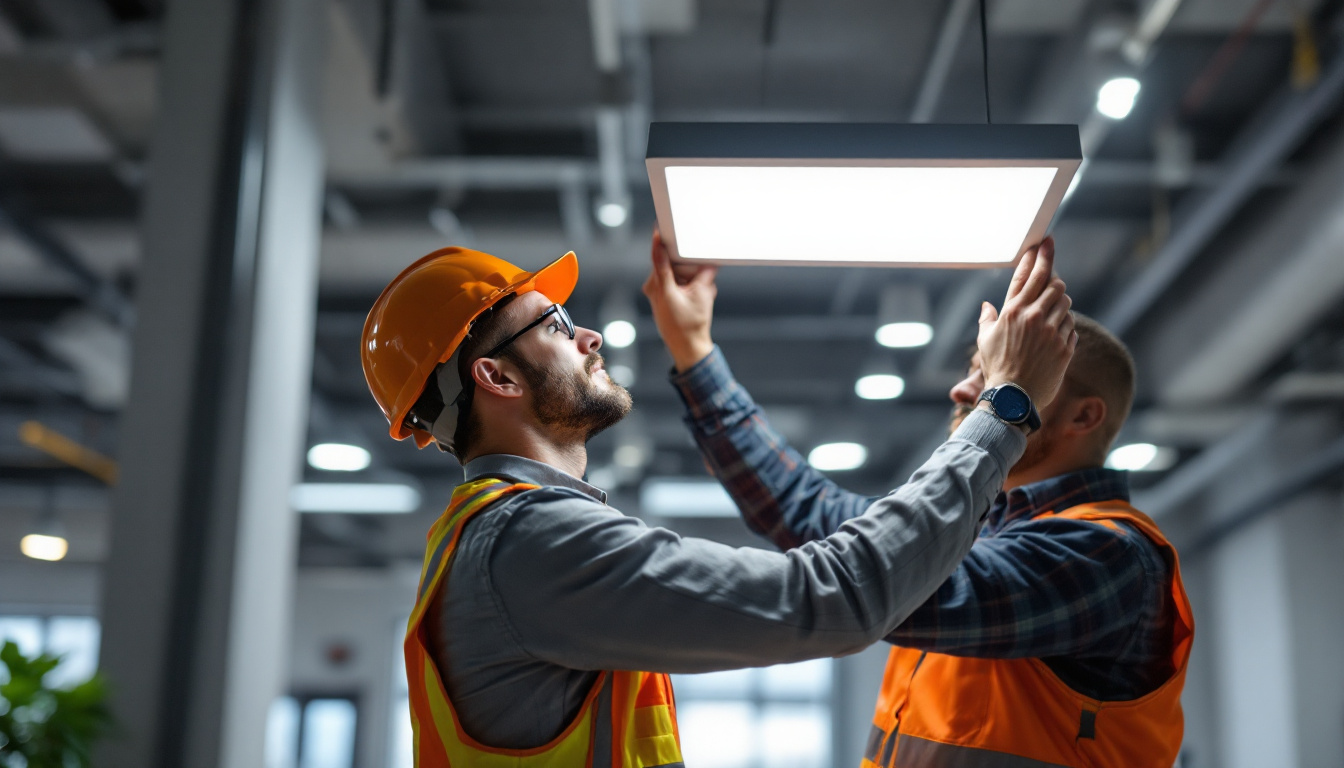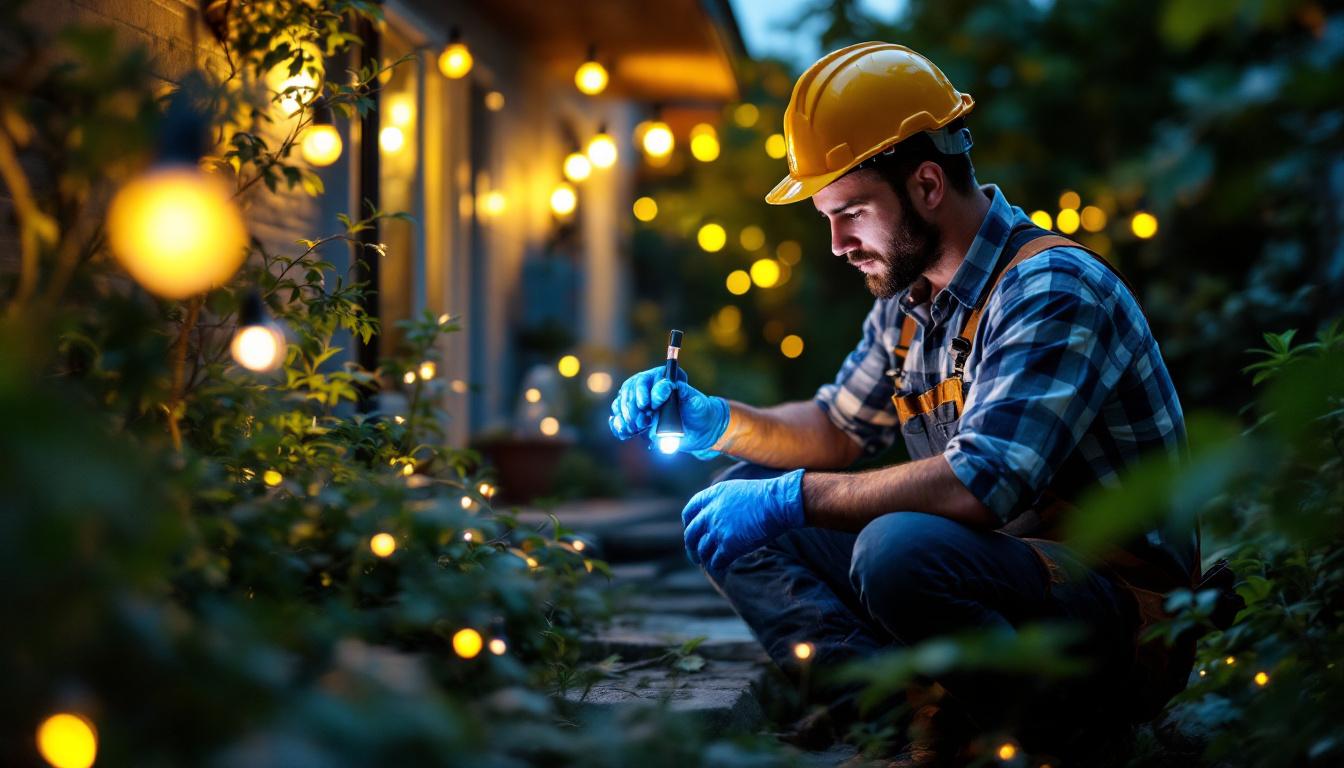
As the demand for energy-efficient lighting solutions continues to rise, LED light panel lights have emerged as a popular choice among contractors and clients alike. However, navigating the compliance landscape surrounding these products can be complex. Understanding the regulations and standards that govern LED lighting is crucial for lighting contractors aiming to deliver high-quality, compliant installations. This article delves into the essential compliance aspects that lighting contractors must consider when working with LED light panel lights.
Compliance for LED light panel lights encompasses a range of standards and regulations designed to ensure safety, efficiency, and environmental responsibility. For lighting contractors, grasping these compliance requirements is essential to avoid potential legal issues and to ensure customer satisfaction.
Several key standards govern the use of LED light panel lights, including those set by organizations such as the American National Standards Institute (ANSI), the Institute of Electrical and Electronics Engineers (IEEE), and the Underwriters Laboratories (UL). Each of these organizations provides guidelines that help ensure the safety and performance of lighting products.
For instance, UL certification is crucial as it indicates that the product has been tested for safety and meets specific performance criteria. Lighting contractors should always verify that their products are UL-listed, as this not only assures compliance but also builds trust with clients. Additionally, compliance with ANSI standards ensures that the products meet industry-wide benchmarks for quality and reliability, which can be a significant selling point for contractors when discussing options with clients.
Furthermore, understanding the nuances of these standards can also aid contractors in navigating the complexities of project specifications. For example, some projects may require adherence to specific IEEE standards that govern electromagnetic compatibility, which is critical in preventing interference with other electronic devices. By staying informed about these standards, contractors can better position themselves as knowledgeable professionals in the field.
Energy efficiency is a significant focus in the lighting industry, with various regulations aimed at reducing energy consumption. The Department of Energy (DOE) and other local regulatory bodies often set mandates that require lighting products to meet specific energy efficiency standards. For instance, the Energy Star program is a well-known certification that signifies a product’s adherence to strict energy efficiency criteria.
Contractors should be familiar with these energy efficiency regulations, as they can influence product selection and project specifications. By choosing compliant products, contractors can help their clients save on energy costs while also contributing to sustainability efforts. Moreover, many states offer incentives or rebates for projects that utilize energy-efficient lighting solutions, which can further enhance the financial appeal for clients considering an upgrade.
Additionally, understanding the lifecycle impact of LED products can also be beneficial. LED lights not only consume less energy but also have a longer lifespan compared to traditional lighting options. This longevity translates to reduced maintenance costs and less frequent replacements, making them a more sustainable choice in the long run. Contractors who can articulate these benefits effectively are likely to gain a competitive edge in the marketplace, as clients increasingly prioritize both cost savings and environmental stewardship in their purchasing decisions.
Ensuring compliance goes beyond selecting the right products; it also involves adhering to best practices during installation. Proper installation not only guarantees that the lighting system performs optimally but also that it meets all regulatory requirements.
Before beginning any installation, lighting contractors must familiarize themselves with local building codes and regulations. These codes can vary significantly from one jurisdiction to another and may include specific requirements for electrical installations, fixture placement, and energy efficiency.
Contractors should consult with local authorities or building inspectors to ensure that their installations comply with all applicable codes. This proactive approach can prevent costly rework and delays in project completion.
Proper wiring is essential for ensuring the safety and efficiency of LED light panel lights. Contractors should follow the manufacturer’s wiring instructions closely and use appropriate materials that comply with electrical codes. This includes selecting the right gauge wire and ensuring that all connections are secure and properly insulated.
Additionally, contractors should be aware of the importance of grounding and circuit protection. Implementing these safety measures not only protects the lighting system but also enhances the overall safety of the installation.
After installation, testing and quality assurance are vital steps to ensure compliance and functionality. A thorough testing process can identify any issues that may affect the performance of the LED light panel lights.
Performance testing involves checking the light output, color temperature, and energy consumption of the installed LED panels. Using a light meter, contractors can measure the luminous intensity and ensure that the panels meet the specified performance criteria.
In addition to performance tests, it is essential to verify that the panels are functioning correctly under various conditions. This includes testing for flicker, dimming capabilities, and thermal performance to ensure that the lights operate efficiently and safely.
Documentation is a crucial aspect of compliance. Contractors should maintain detailed records of all installations, including product specifications, test results, and any correspondence with local authorities. This documentation serves as proof of compliance and can be invaluable in case of inspections or disputes.
Furthermore, having a well-organized documentation process can streamline future projects, making it easier to reference past installations and ensure consistency in compliance efforts.
The landscape of lighting regulations and standards is continually evolving. As a result, it is imperative for lighting contractors to stay informed about any changes that may impact compliance requirements for LED light panel lights.
Joining industry associations can provide contractors with valuable resources and insights into compliance trends. Organizations such as the National Electrical Contractors Association (NECA) and the Illuminating Engineering Society (IES) offer educational programs, webinars, and publications that cover the latest compliance information.
By actively participating in these associations, contractors can network with peers, share best practices, and stay abreast of emerging compliance standards. This proactive approach can enhance their expertise and improve the quality of their installations.
Investing in continuing education and training is another effective way for contractors to stay updated on compliance issues. Many manufacturers and industry organizations offer training sessions that cover the latest technologies, installation techniques, and compliance regulations.
By participating in these training opportunities, contractors can ensure that their skills remain relevant and that they are equipped to handle the complexities of compliance in the LED lighting sector.
While understanding compliance is crucial, recognizing common pitfalls can help contractors avoid mistakes that could jeopardize their projects. Being aware of these challenges can lead to more successful installations and satisfied clients.
One of the most frequent mistakes contractors make is neglecting manufacturer guidelines. Each LED light panel comes with specific installation instructions and compliance requirements that must be followed to ensure safety and performance.
Failing to adhere to these guidelines can result in subpar performance, safety hazards, and potential liability issues. Contractors should always review the manufacturer’s documentation before beginning an installation and ensure that all team members are familiar with the requirements.
Compliance does not end with installation; ongoing maintenance is also critical. Many contractors overlook the importance of educating clients about the maintenance needs of LED light panel lights. Regular cleaning, inspection, and timely replacement of components can significantly extend the lifespan of the lighting system and maintain compliance.
Contractors should provide clients with a clear maintenance plan that outlines the necessary steps to keep the lighting system in optimal condition. This proactive approach can enhance customer satisfaction and reduce the likelihood of compliance issues in the future.
As technology continues to advance, the future of LED light panel compliance is likely to evolve as well. Emerging trends such as smart lighting and IoT integration are changing the way lighting systems are designed, installed, and maintained.
Smart lighting technologies are becoming increasingly popular, offering enhanced control and energy efficiency. However, these systems often come with their own set of compliance challenges. Contractors must stay informed about the specific regulations that govern smart lighting installations, including data privacy and cybersecurity concerns.
By embracing these technologies and understanding their compliance implications, contractors can position themselves as leaders in the industry and meet the growing demand for innovative lighting solutions.
As sustainability becomes a priority for many clients, compliance with environmental regulations is also gaining importance. Lighting contractors should be aware of the environmental impact of their products and installations, including waste management and recycling requirements.
By prioritizing sustainability in their projects, contractors can not only comply with regulations but also appeal to environmentally-conscious clients. This focus on sustainability can enhance a contractor’s reputation and contribute to a more sustainable future in the lighting industry.
Compliance in the realm of LED light panel lights is multifaceted, encompassing safety standards, energy efficiency regulations, installation best practices, and ongoing maintenance requirements. For lighting contractors, understanding and adhering to these compliance aspects is essential for delivering high-quality installations that meet client expectations and regulatory demands.
By staying informed about compliance changes, engaging with industry associations, and investing in continuing education, contractors can navigate the complexities of LED lighting compliance with confidence. Avoiding common pitfalls and emphasizing sustainability will not only enhance project outcomes but also position contractors as trusted experts in the ever-evolving lighting landscape.
Ultimately, a commitment to compliance is not just about meeting regulations; it is about fostering trust, ensuring safety, and contributing to a more sustainable future in the lighting industry.
Ready to ensure your LED light panel installations are compliant, efficient, and trusted by your clients? Look no further than LumenWholesale for all your lighting needs. Our extensive selection of spec-grade lighting products meets the highest industry standards, giving you the confidence to deliver exceptional projects every time. With unbeatable wholesale prices and the convenience of free shipping on bulk orders, you can provide value and quality without compromise. Elevate your lighting game and make compliance a seamless part of your service. Discover wholesale lighting at the best value today and light up your projects with LumenWholesale.

Discover the essential compliance guidelines for recessed eyeball can lights in this comprehensive guide tailored for lighting contractors.

Discover essential best practices for lighting contractors in the evolving field of LED solar lighting.

Discover essential tips from lighting contractors on effectively using frame LED lights to enhance any space.

Discover common fluorescent wiring diagram mistakes lighting contractors make and learn expert tips to avoid costly errors, ensuring safer, efficient installations..